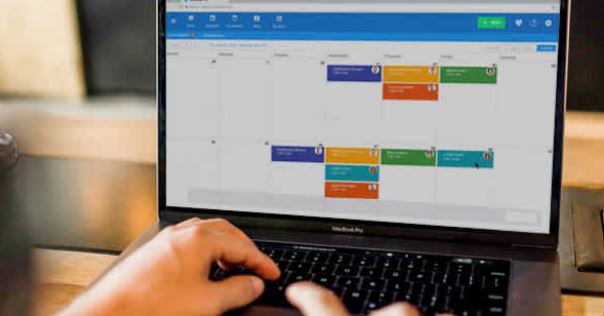Electronic Booking Service (EBS) As Part Of A National Modernisation Programme Of The NHS
Electronic Booking Service NHS Dissertation – This dissertation attempts to look into the Electronic Booking Service (EBS) as part of a national modernisation programme of the NHS. In recent years, government involved IT projects have not had any significant nor impressive outcome. The NHS for many years has been constantly criticised for some of its poor services. In terms of medical diagnostics, therapeutics and Research, it excels amongst many other healthcare services in the world. However, on the measure of efficiency, it scores poorly. The Labour government decided to reform the NHS using Information Technology. A sum of £6 billion has been invested into the many projects of the Modernisation Programme.
The Electronic Booking Service has caused much controversy amongst the many doctors employed by the health service. They are the end – users of EBS and from preliminary reading, their views and attitudes, do cause concern, especially when £6bn is at stake. This dissertation attempts to capture the opinions of the NHS staff regarding the NHS and Information Technology, in particular of EBS. The main method of collecting qualitative data will be by the use of a survey.
Having looked at a great depth into the past IT projects and analysed the information, the project tries to identify the underlying problems that have militated against the success of the NHS IT Programme, especially of the Electronic Booking System. It also attempts to find the common characteristics found in the recipe of the past failed IT projects. The idea of the study is to look at both technical and sociological aspects in the implementation of EBS and of the past IT schemes.
A project of this type will not be able to produce simple recommendations and conclusions for the success of EBS. This is purely due to the scale of the project. No project of such complexity and scale has ever been attempted in the world. For such statements to be made, extensive investigation and research into the development of EBS is required. A painstaking system analysis is needed, to seek the underlying problems faced or to be faced in the design. Other issues such as political issues, especially the issue of finance needs to be investigated in great depth. It will be very difficult for this kind of project to be gain access to vital information.
With so much controversy in the House of Commons and among staff in the medical professionals, some vital documents will not be disclosed to the public. Such confidential information is of absolute necessity to make recommendations and conclusions. The project will only be able to identify factors that could lead to EBS to failure or success.
The findings of the survey will be considered in light of the secondary research. The secondary research entails of past IT projects led by the government and to determine if a trend has evolved from the past projects. Thereafter, EBS will be considered in much detail, in an attempt to see if the trend of previous project is also evident in the implantations of EBS. From these findings, a conclusion will draw upon the likely outcome of the new Information Technology project.
- 20,000 words – 81 pages in length
- Good use of literature throughout
- Good analysis of subject area
- Well written throughout
- Ideal for IT and computing students
1: Introduction
Project Brief
Project Purpose
Project Objectives
2: Past Information Technology Projects
The London Ambulance Service
Department of Work and Pension
Child Support Agency
Department of Social Services
Magistrate’s Courts
Passport System
Summary
3: Introduction to the Electronic Booking System (EBS)
History of NHS
Recommendations of Wanless report
Spending of the NHS
The NHS Plan
Current Referral System
Problems associated with the referral process
Did Not Attend (DNAs)
Electronic Booking System
Functionality of EBS
GP – end of Electronic Booking Service
Consultant – end Electronic Booking Service
Benefits of Electronic Booking System
4: Methods and Materials
Briefing
Survey
Design Rationale
Primary Research
Questionnaire
Survey group
5: Results of the Survey
6: Analytical Discussion
Awareness of staff in regards to the Electronic Booking System
Consultations with NHS staff
Favourability of EBS amongst staff
Benefits of the Electronic Booking System to be achieved
Attitudes of staff towards the Electronic Booking System
Challenges for the implementation of EBS
Pilot studies of EBS in hospital clinics and GP surgeries
View of staff whether EBS will be more beneficial than current referral system
Confidence in Information Technology Infrastructure
View of staff whether new system will be more complicated and time consuming
Question of whether EBS can free up extra time for consultations
Ability of Information Technology to save money for the NHS
View of staff whether use of IT in the NHS has been long overdue
Capability of IT to deliver success for the NHS
7: Discussion
Choice provided by EBS
Security concerns
Use of computers in medicine and surgery
Evidence based subject
The New National Network, N3
Lack of experienced IT staff
Time scale of EBS implementation
Management from Government
8: The Electrical Booking System: Evaluation of Success and Failure
Dimensions of failures
Causes of implementation success and failure
Testing Procedure
SWOT Analysis of the Electronic Booking System
Conclusion
9: Conclusions
Recommendations
Limitations
References

